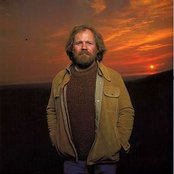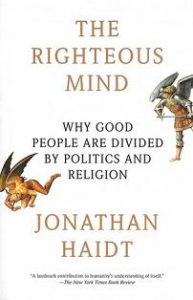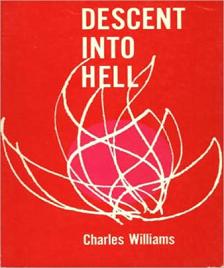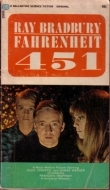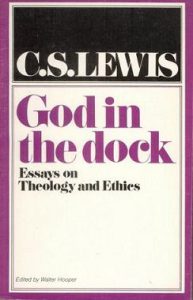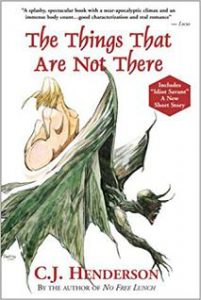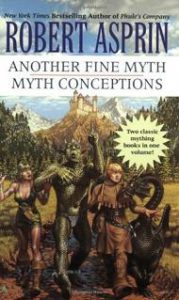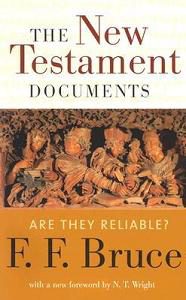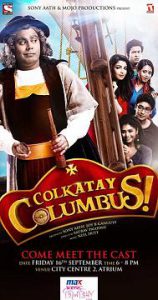This is mark Joseph “young” blog entry #297, on the subject of An Objective Look at The Extreme Tour Objective Session.
Late last year I received an invitation from someone representing something called The Extreme Tour inviting me to investigate mutually the possibility of participating in their program. The big piece of the puzzle was something called The Objective Session, a long weekend of meetings in Nashville which they correctly say defies characterization as a convention or conference or retreat or just about any other label we might put on a large gathering of persons for a specific purpose. The Greeks would probably have called it an ekklesia, which means a gathering of people called together by a common interest, but which we typically translate “church”–and there is a sense in which church is not a bad name for what this is, but it’s very unlike any church I’ve ever attended, and I’ve attended many in many different denominations.
The odd thing was that I could find very little online about either The Extreme Tour or The Objective Session. Then many events conspired against any hope I might have had of attending–our car’s transmission died to a tune of almost as much as we were still paying for the car, I was hospitalized twice, money was getting tighter. I wasn’t investigating the trip as diligently as I otherwise might have done because it was beginning to look impossible–but I was still praying about it.
Then with literally less than a week to go the last pieces were falling into place; it transitioned from a ridiculous impossibility to a very difficult possibility. I posted to all the Christian musicians groups I knew to see if anyone could advise me on this, and got almost no response at all, and none that was informed. On Tuesday morning I was literally weeping, for reasons I cannot really explain in this post beyond that it had looked as if an opportunity to do something with the music had been placed in front of me and I was going to have to decline it. That’s a lesson for a different forum, but an hour later the last piece of the puzzle fell into place and the decision was made: my son Adam and I were going to Nashville to attend The Objective Session.
It was then that we started getting advice from musicians, and it had three things in common. The first was they were universally against our going. The second was they knew no more and probably less than I did about the program. One person asked if I had ever heard of a concert being presented by The Extreme Tour, which was a pretty useless question because I’m pretty sure that of all the concerts I attended and even promoted when I was at the radio station, I knew who presented or sponsored very few of them. Another person seems to have a very odd view of divine guidance, suggesting that no believer would ever be uncomfortable doing anything that was what God was directing him to do. The third commonality was that most of them had received invitations and ignored them.
The decision had already been made, so this advice had less impact than it might otherwise have had. We went. It was a twelve-hour drive, and over the course of Wednesday night through Monday morning we probably spent between two and three hundred dollars on food, gas, and tolls; lodging at a cheap hotel less than half an hour from the site even in morning traffic was less than two hundred dollars for three nights, although with how intense the event was it probably would have been better for us to have stayed in the area the nights before and after. Parking at the venue was free for the event, but we made a point of arriving early and not moving the car until we were done, because it was very crowded. Because we had been invited the meeting itself cost us nothing, and I don’t want to quote the price I heard for tickets for those not invited.
What I want to do in this post is provide information for those who have been invited and don’t know whether it would be worth going. I’ll give you the short answer up front: I don’t know what will happen from it, but for us it was worth going.
To fully understand The Objective Session you probably need to understand The Extreme Tour. Ted Brunn, founder, has one of those testimonies on the order of he should have died and the doctors don’t know why he lived and were themselves using the word “miracle” (fell seven stories and landed on his head on rocks). At some point he became extremely sensitive to the fact that there are a lot of lost people out there who don’t believe that anyone cares about them, and he began an organization that works with local non-profit groups to put on free shows in places no one wants to perform. The shows include select artists and talented extreme sports athletes (e.g., skateboarding exhibitions), and the message to the people is that someone does care about them. All of the performers, as well as all of the staff, are volunteers; the money that the organization collects really does go to the expenses of doing what they do, such as hiring sound equipment for venues. For some situations they defray costs of performing artists, but this is not an organization designed to make you rich. It is rather designed to enable you to contribute your talents alongside those of others to take the good news into places you probably could never go alone.
The Objective Session is from their perspective an opportunity for them to meet potential volunteer performers; to facilitate that, they also gather many music professionals from the Nashville area. Although in spare moments throughout the weekend I tackled the program book, I never finished reading all the names and credentials, and I’m only going to name a few here. I will also mention that there were said to be six hundred of us in attendance, and I met many of them and have CDs from a few. Probably the last thing I did was give a couple CDs of my own music to a young artist who was probably the first person I met when I arrived; it seemed the right thing to do at the time, as he wanted to hear the rest of the song I had partly sung the day before, and I was in no condition to attempt to sing it.
I will tell you that from the moment we arrived things were happening. Because of the fact that we drove eight hundred miles and twelve hours with one break for dinner and gasoline (don’t tell my hemotologist) arriving around noon central time and staying up to reach our hotel twenty minutes outside the city after midnight, so I was immunologically compromised, we left the event a bit early on Friday and Saturday nights. There are no meal breaks; there are food trucks in the parking lot said to be some of the finest in the city (and the ones I patronized were very good) and they recommend you slip away and bring back food to eat during the meetings.
Let me say I have been to several retreats for Christian musicians over the decades. This one was what all the others only dreamed of being. Here are some of the highlights of my experience.
Many of the speakers were excellent. I apologize that with that intense a schedule I can’t specifically pinpoint what we heard from Wes Yoder (one of the original business names in the CCM world), Tom Jackson (the go-to guy for staging a musical show), or any of the others; I do remember that Dr. Ken Steorts, founding guitarist of Skillet, delved into a Biblical understanding of the function of artists (he has a book on the subject). I had private meetings with Ezra Boggs and Vince Wilcox for the specific purpose of gaining some career advice, and I attended a songwriting session led by early Petra member Rob Frazier, at which I was invited to sing a portion of my song Free.
There were some things for which there was a charge, or an extra charge, and I took advantage of one, submitting a few of my songs and some biographical information to be distributed to a list of Nashville professionals who wouldn’t take anything like that from a stranger but would take it from people they know at The Extreme Tour. That was just under two hundred dollars, and I don’t expect to hear the outcome of that for at least a few days, probably a few weeks. I did not get tapped for a recording contract or management representation. However, I did not pay the extra to be one of perhaps a dozen performers who played two songs each for a panel of industry judges on Friday and Saturday evenings. Adam said it sickened him to watch eight strangers critize the performances of these mostly wonderful artists, although I sometimes found myself agreeing with their criticisms as things I would have said. He felt even worse when I told him that those artists had paid somewhere around five hundred dollars each for the privilege of being so criticized. However, while we watched a young band called Zoe Imperial absolutely wowed the attendees (and most of us fancy ourselves professional caliber musicians) with a rock/hip-hop blend in a show choreographed and performed as well as anything I’ve seen since Servant, one of the judges, Lamont Compton a.k.a. Supreme, leapt up on stage to offer them a management deal with him, so it does happen.

What Ted Brunn hopes will be the real impact, though, is that on Saturday night we were broken into teams and sent to Broadway in Nashville to make music and get attention and talk to people about the hope that is in us. Because it was so late and my condition was deteriorating I did not attend these, and Adam took me back to the hotel; I’m sorry he missed it, but I did that kind of thing at the Boston Common and the Topsfield Fair decades ago, so I’ve seen it. On Sunday afternoon we put on a concert (I really just watched) supporting a local church barbecue (O.K., so I also ate a hotdog and some chips) in a field that was supposed to be a park but there were too many shootings there for people to feel safe outside in it ordinarily. Most of us were to interact with the people, to let them know, once again, that someone cares about them. I watched a recently signed Universal recording artist attendee dancing with young ghetto children, and a Christian rapper hold a children’s dancing contest on the portable stage someone had loaned the Tour at the last minute when transportation for the stage they were going to use failed. This organization is really about taking the message to the hopeless, and it was worth every minute of it and the respiratory distress I was still fighting to overcome the night after.
It struck me that this might seem like a lot of effort for the opportunity to play a bunch of free concerts. I can’t speak to participating on the tour because I haven’t yet done so and have no guarantee that I will be invited. However, it seems to me that my experience is fairly typical, that most of us play most of our concerts for free, mostly in venues which reach only Christians. That’s not a problem for me, because my ministry is to be a teacher, which is primarily a ministry to believers, and my music frequently reflects that; but Paul told Timothy to do the work of an evangelist, and there’s good reason to think that that instruction is for all of us, or at least all of us doing any kind of ministry at all, so the opportunity to do for free what you are already doing for free but in front of people who need to hear the message alongside others doing the same might be worth the time and effort.
So to all those who thought it was some kind of scam, I am persuaded otherwise; and to those who wondered whether it would be worth it, I am persuaded that it is. Probably you won’t get a Nashville management deal or recording contract; those are few and far between. Maybe you won’t be convinced to volunteer for free concerts in ghettos and such, but you will still benefit, I think probably enormously, from the experience. Maybe you will get something from it that will move your music and ministry career forward in a significant way. Maybe that’s not the point of what you’re doing, and maybe you’ll discover what it is God really wants from you.




